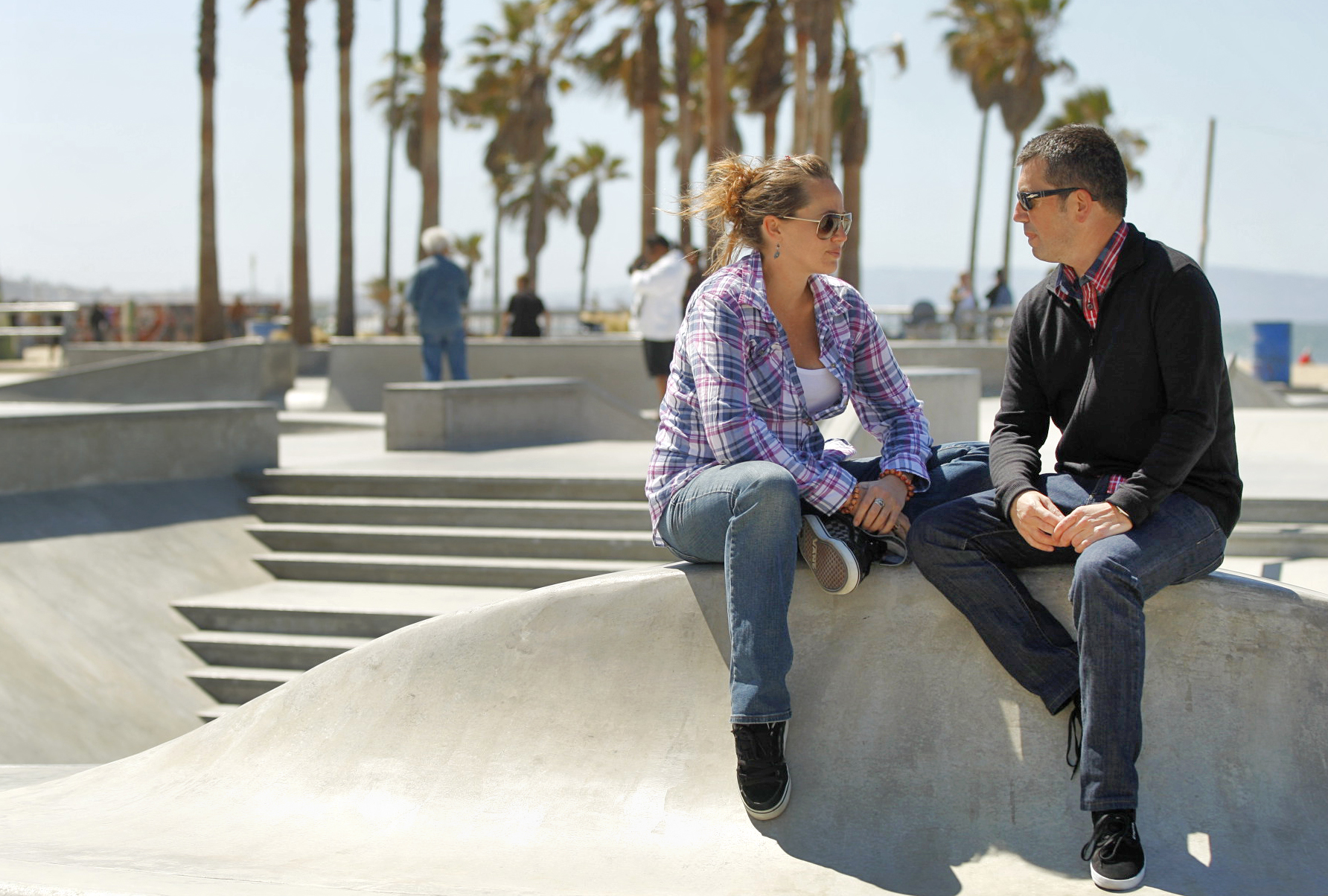Wheels and Reels

Caroline Graeff and Fabrice Le Mao, founders of the Los Angeles Skate Film Festival, pose in a skate park. The first annual festival received more than 100 film submissions. (Photo courtesy of Vanessa Andrieux)
By Ilse Escobar
Aug. 30, 2010 1:56 a.m.
Los Angeles has long been home to films, and it’s long been home to skateboarding, but only recently has it been home to films about skateboarding. The first annual Los Angeles Skate Film Festival, to be held Aug. 31″“Sept. 1 at the Downtown Independent Theater, formally documents this partnership.
“As it stands now, films are directly influencing the skateboarding culture,” said Caroline Graeff, cofounder of the festival.
The idea for the festival came from journalist and author Fabrice Le Mao, who approached Graeff about the feasibility of hosting the event about a year ago.
Their work has resulted in more than 100 international and national video submissions, sponsorships and the creation of the Academy of Skateboard Filmmakers.
“We created an academy, like the Oscar academy. We have 10 people in there who are heavily involved in the film and skate industry,” Graeff said.
The academy includes renowned names such as Stacy Peralta, one of the original Z-Boys, a group credited with revolutionizing skateboard culture by distancing it from its surfer roots.
The Z-Boys’ story was retold in the 2001 Hollywood film “Lords of Dogtown,” which Peralta wrote.
Skateboarding in film has a long-standing and often very informal history. Skateboarding moves were first recorded by photography, but moving film influenced and changed the skateboarding culture.
“They went beyond what a magazine could do. A young kid in Australia or Japan could see these maneuvers being done in real time. It lifted the sport; (it was) a huge transference of information,” Peralta said.
Peralta believes that this greater level of exposure is especially critical for youth in the inner cities; skateboarding is an optimal outlet since it is low-cost, low-maintenance and concrete.
The festival’s wide array of categories reflects the effort to reach as many skate filmmakers and as wide an audience as possible. The varied categories include Best Emerging Filmmaker, Best Documentary, Best Independent Film and Best International Film.
The members of the academy chose three films as official selections for each category, and the winners in each category will be announced at the awards ceremony on Sept. 2 in Hollywood.
This is not only the first Los Angeles skate film festival; it is also the first international one. It brings together filmmakers from many different parts of the world.
According to Graeff, there were video submissions from 19 different countries, including Chile, France, the Netherlands and Thailand.
Peralta found the British film “Skateistan: To Live and Skate Kabul,” an emotionally moving film about skaters in Kabul, Afghanistan.
“It made me realize why I skateboard and how skateboarding saves kids’ lives, gives them something amongst the turmoil and destruction they live in,” Peralta said.
Although a skateboarding veteran in the film industry, Peralta was taken aback by the variety of skate film submissions. The festival exposes skateboarding films that have substantial characters and plots, moving beyond trick videos.
Both Graeff and Peralta believe the festival will help make a market for quality skate films, and will encourage more skaters to use film as another creative outlet.
John Danielson’s submission, “Corridor of Shame,” is an official selection for the Los Angeles Skate Festival in the Best Emerging Filmmaker category.
Danielson is 21 and doesn’t have formal training in filmmaking.
“It was never that I wanted to be famous. I wanted to take my friends and display their skills,” Danielson said.
One of the films in the Best Skate Shop Video category comes from Noah Lewkow of the ZJ Boarding House in Santa Monica.
Like Danielson, Lewkow was not looking for personal fame in the film industry.
“It’s going to be more like doing it for the homies. It will be a really good thing for us to display the talent on the team,” Lewkow said.


